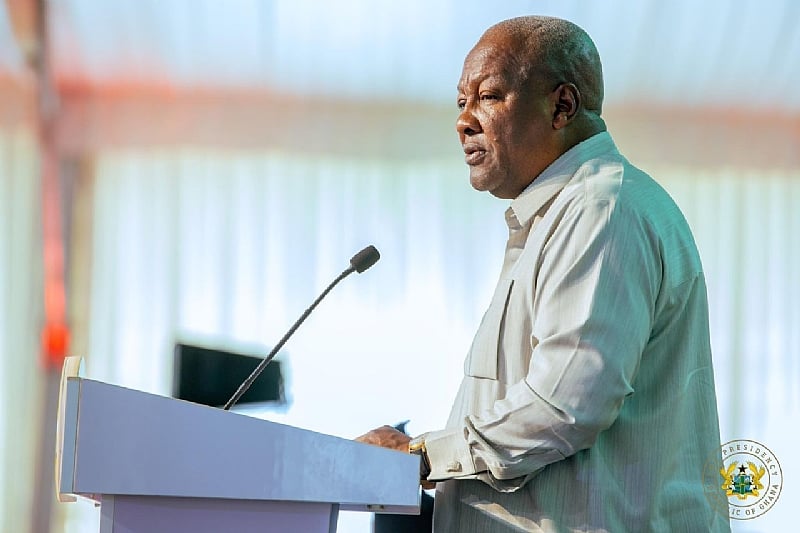President John Dramani Mahama’s address at the African Union Debt Conference in Lomé, Togo, centered on the critical need for responsible and transparent debt management practices across the African continent. He argued that borrowed funds should be strategically invested in projects that directly benefit citizens and contribute to sustainable development, rather than exacerbating existing debt burdens. This, he emphasized, requires a fundamental shift in approach, moving from reactive crisis management to proactive and strategic utilization of debt as a development tool. He underscored the importance of transparency and accountability as foundational pillars for effective public debt management, advocating for strengthened parliamentary oversight, enhanced public debt audits, and the widespread adoption of open budget systems. He highlighted the concerning statistic from the International Monetary Fund (IMF) that less than 40% of African countries publish detailed debt reports, urging for a radical change in this area to foster greater public trust and ensure responsible fiscal management.
President Mahama’s call for transparency extends beyond simply publishing debt data. It encompasses a comprehensive approach to debt management that prioritizes citizen engagement and oversight. Open budget systems, he argued, are crucial for empowering citizens to understand how public funds are being allocated and utilized, fostering a sense of ownership and accountability. Parliamentary oversight, through robust scrutiny of borrowing and spending decisions, plays a vital role in ensuring that debt is contracted responsibly and utilized for its intended purpose. Similarly, independent public debt audits provide an essential mechanism for verifying the accuracy and integrity of debt reporting, further strengthening accountability and preventing misuse of public funds.
The former Ghanaian president emphasized the importance of linking borrowing to productive investments. He advocated for a shift towards “productive, efficient, and responsible borrowing,” where debt is strategically deployed to finance projects that generate tangible returns for the populace. This means focusing on investments in sectors that drive economic growth, create jobs, and improve the lives of ordinary citizens. He cited examples from his own administration in Ghana, highlighting investments in value-added agriculture, renewable energy, infrastructure development, health, and education as key areas where strategic borrowing can yield significant long-term benefits. These sectors, he argued, are crucial for building a strong foundation for sustainable development and ensuring that borrowed funds contribute to long-term prosperity.
President Mahama’s emphasis on responsible borrowing is not merely a call for fiscal prudence; it is a call for strategic investment in Africa’s future. By focusing on sectors like value-added agriculture, he advocates for moving beyond raw material exports and developing local processing capacity, creating jobs and adding value to African products. Investing in renewable energy, he argued, is not just environmentally sound but also economically prudent, reducing reliance on expensive fossil fuels and promoting energy independence. Infrastructure development, encompassing transportation, communication, and energy networks, is essential for facilitating economic activity and connecting African markets to the global economy. Similarly, investments in health and education are crucial for building human capital, empowering citizens, and ensuring a healthy and productive workforce.
The African Union Debt Conference, where President Mahama delivered his remarks, served as a crucial platform for discussing these vital issues. Held under the theme “Africa’s Public Debt Management Agenda: Restoring and Safeguarding Debt Sustainability,” the conference brought together a diverse array of stakeholders, including representatives from AU Member States, policymakers, financial experts, officials from Ministries of Finance, African central banks, regional economic communities, multilateral financial institutions, and civil society organizations. This broad representation ensured a comprehensive and multi-faceted discussion on the challenges and opportunities related to public debt management in Africa. The conference aimed to foster collaboration and knowledge sharing, promoting innovative practices in debt management and exploring strategies for achieving debt sustainability.
The conference discussions focused on developing and implementing effective strategies for managing public debt in a way that supports sustainable development. This includes exploring innovative financing mechanisms, strengthening debt restructuring processes, and promoting greater transparency and accountability in debt management practices. The participation of civil society organizations was crucial in ensuring that the voices of ordinary citizens are heard and that debt management policies are responsive to the needs and priorities of the people. By bringing together a diverse range of stakeholders, the conference aimed to forge a common understanding of the challenges and opportunities related to public debt management and to develop collaborative solutions for achieving debt sustainability and unlocking the potential of debt as a tool for development.


